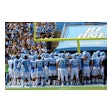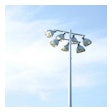When students voluntarily participate in extracurricular activities, the courts have ruled that school districts and school administrators have a legal right to infringe on the constitutional rights of student-athletes in the areas of drug testing, due process or equal protection. By contrast, in a recent case, T.V. v. Smith-Green Community School Corporation [2011 U.S. Dist. LEXIS 88403], the United States District Court for the Northern District of Indiana refused to allow school administrators the right to restrict students' speech in violation of the First Amendment.
The judge in the case was asked to decide whether an Indiana school district violated the rights of two teenage girls, both of whom were members of the school's volleyball team, when the school punished them for posting sexually suggestive photos of themselves on the Internet. None of the images, which were taken away from school during the summer vacation, identified the girls as students at Churubusco High School. However, the school claimed that the photographs violated the Student Handbook, and that by posting them online, the students had brought discredit upon the school. As punishment, the school suspended the two girls from fall extracurricular activities.
In ruling that the school overstepped its bounds, the court held that the First Amendment is not limited to written or spoken words, but includes other mediums of expression, including music, pictures, films, photographs, paintings, drawings, engravings, prints and sculptures. Therefore, even though the photos were juvenile and silly, the photos and the message they conveyed were protected under the First Amendment.
As for the school's argument that students have no constitutional right to participate in extracurricular activities, the court held that while that may be true, the constitutional right at issue in the current case was freedom of expression, not the right to participate in extracurricular activities. Therefore, the court concluded that as long as the speech was non-disruptive and was not lewd, vulgar and/or plainly obscene, the students could not be punished by a ban from extracurricular activities.
While the issue of high school students posting suggestive photos of themselves on the Internet may seem silly from a federal standpoint, the case is important because it clearly sets limits on what types of speech school administrators can punish, especially when the speech occurs out of school.
































